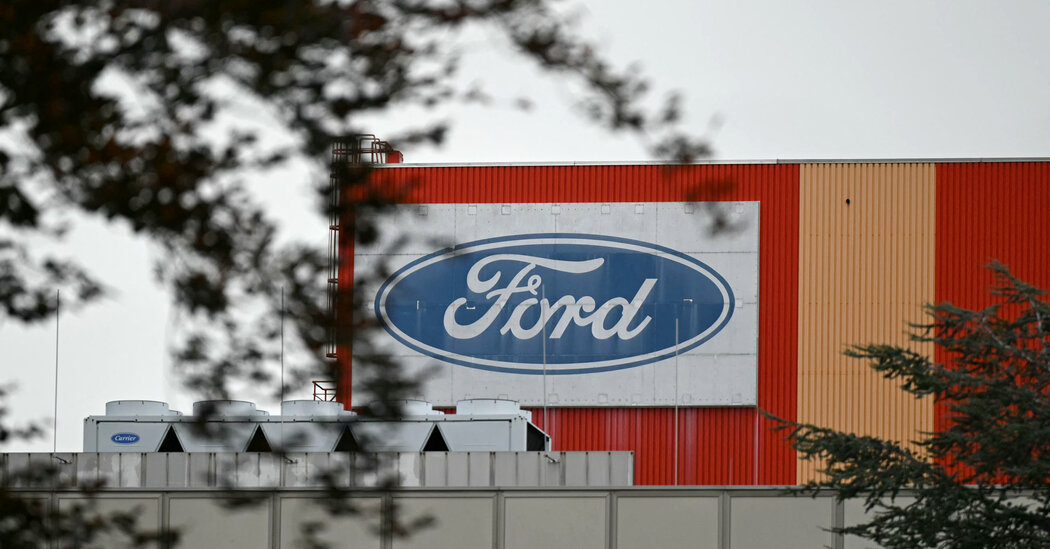The American automaker said the cost-cutting measure would help it compete with Chinese rivals in the face of slowing demand for electric vehicles.
Ford Motor said Wednesday that it would eliminate 4,000 jobs in Europe as the automaker struggled with slowing demand for electric vehicles and increased competition from Chinese companies.
The company said that the jobs cuts, which will take place by the end of 2027, were part of a broader reorganization plan to strengthen its business in Europe. The reductions will primarily affect plants in Germany and Britain.
Ford added that it would reduce production of an electric version of its Explorer sport utility vehicle, which would result in shorter working hours at a plant in Cologne, Germany, in the first quarter of 2025.
The company said that it was committed to building a thriving business in Europe. “It is critical to take difficult but decisive action to ensure Ford’s future competitiveness in Europe,” Dave Johnston, Ford’s European vice president for transformation and partnerships, said in a statement.
Ford’s pullback comes as the auto industry tries to navigate the bumpy transition to electric vehicles. The growth rate of E.V. sales has slowed this year in some European countries. Ford has also struggled to sell as many battery-powered models as it had hoped in the United States and said in August that it would reduce the pace of investments in such vehicles.
Other automakers, including Volkswagen and Mercedes-Benz, have also shifted their strategies after reporting fewer sales of battery-powered vehicles than they had expected. Sales of electric cars in the 27 member nations of the European Union fell 5.8 percent in the first nine months of the year, according to the European Automobile Manufacturers’ Association.
In addition, automakers face intense competition from Chinese companies like BYD and Geely, which have made a strong push into Europe with relatively affordable electric and hybrid vehicles.
Volkswagen, which reported a 42 percent drop in profit in the third quarter, is considering plans to shutter as many as three auto factories in Germany, the first shutdowns in its home country in the company’s 87-year history.
In its statement on Wednesday, Ford said that it had called on industry executives, policymakers, union officials and others in Europe to work together to help smooth out the industry’s rocky transformation.
Last month, the European Union voted to increase tariffs on imported electric vehicles made in China to as much as 45 percent. Some Chinese automakers have responded by teaming up with European automakers to produce electric vehicles in Europe or by building their own factories there.
China has reacted to the increased tariffs by imposing temporary penalties on brandy from Europe and warning of possible tariffs on other European goods.
The growing trade tensions between China and the European Union has led some companies to rethink their business strategy. The brandy maker Hennessy, part of the LVMH conglomerate, is considering bottling its products in China to avoid the higher costs, a plan that sent workers on strike at a factory in southwest France.
